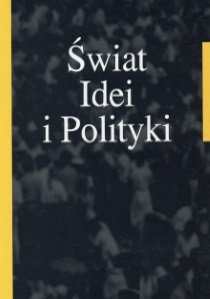The narrations on the annexation of Crimea in „Foreign Affairs” seen through theories of international relations
DOI:
https://doi.org/10.34767/SIIP.2016.15.07Keywords:
2014 Annexation of Crimea, American political journals, International politics – theory.Abstract
Publications in western specialized journals which describe the Russian Federation’s international behavior have always followed a certain paradigm of international relations. The article is an analysis of opinions and beliefs held by commentators and analysts writing for „Foreign Affairs”, based on their publications about the annexation of Crimea by the Russian Federation on march 2014. They have been scrutinized using three predominant theories of international relations: realism, liberalism and constructivism. The research proved that west-ern commentators and analysts writing about the annexation of Crimea usually present a single paradigm of international relations. Moreover, they believe it to be the only effective tool in explaining countries’ foreign policy, thereby depreciating the value and usefulness of other paradigms.
References
Asmus R.D., Europe’s Eastern Promise. Rethinking NATO and EU Enlargement, „Foreign Affairs” 2008, Vol. 87, No. 1.
Asmus R.D., Europe’s Eastern Promise. Rethinking NATO and EU Enlargement, „Foreign Affairs” 2008, Vol. 87, No. 1.
Barbashin A., Thoburn H., Putin’s Brain. Alexander Dugin and the Philosophy Behind Putin’s Invasion of Crimea, „Foreign Affairs” 31.03.2014.
Blaney III H.C., Russian Handshake, „Foreign Affairs” 2008, Vol. 87, No. 1.
Brown Michael E., NATO’s Biggest Mistake. The Alliance Drifted From Its Core Mission – And the World Is Paying the Price, „Foreign Affairs” 8.05.2014.
Brown M.E., NATO’s Biggest Mistake. The Alliance Drifted From Its Core Mission– And the World Is Paying the Price, „Foreign Affairs” 8.05.2014.
Brzeziński Z., Wielka szachownica, Warszawa 2010.
Budapest Memorandums on Security Assurances, 1994, Council on Foreign Relations, 5.12.1994.
Burchill S., Linklater A., Devetak R., Donnelly J., Paterson M., Reus-Smit C.,True J., Theories of International Relations, Hampshire, Nowy Jork 2005.
Clover Ch., Dreams of the Eurasian Heartland: The Reemergence of Geopolitics, „Foreign Affairs” 1999, Vol. 78, No. 2.
Czaputowicz J., Teorie stosunków międzynarodowych. Krytyka i systematyzacja, Warszawa 2007.
Fukuyama F., The End of History and the Last Man, Nowy Jork 1992.
Haass R.N., The Unraveling. How to Respond to a Disordered World, „Foreign Affairs” 2014, Vol. 93, No. 6.
Jackson R., Sørensen G., Wprowadzenie do stosunków międzynarodowych. Teorie i kierunki badawcze, Kraków 2006.
Krastev I., Russian Revisionism. Putin’s Plan For Overturning the European Order, „Foreign Affairs” 3.03.2014.
Kuzio T., Farewell, Crimea. Why Ukrainians Don’t Mind Losing the Territory to Russia, „Foreign Affairs” 13.03.2014.
Legvold R., Managing the New Cold War. What Moscow and Washington Can Learn From the Last One, „Foreign Affairs” 2014, Vol. 93, No. 4.
Liberman P., George J.A., Will Conquest Pay? In Crimea, Russia Might Come Out Ahead, „Foreign Affairs” 14.03.2014.
Lorber E., Get Ready for More Russian Belligerence. Why the Sanctions Might Be Too Effective, „Foreign Affairs” 7.09.2014.
Mankoff J., Russia’s Latest Land Grab. How Putin Won Crimea and Lost Ukraine, „Foreign Affairs” 2014, Vol. 93, No. 3.
Mcfaul M., Sestanovich S., Mearsheimer J.J., Faulty Powers. Who Started the Ukraine Crisis?, „Foreign Affairs” 2014, Vol. 93, No. 6.
Mcnamara K.R., The EU After Ukraine. European Foreign Policy in the New Europe, „Foreign Affairs” 4.03.2014.
Mead W.R., The Return of Geopolitics. The Revenge of the Revisionist Powers, „Foreign Affairs” 2014, Vol. 93, No. 3.
Mearsheimer J.J., Why the Ukraine Crisis Is the West’s Fault. The Liberal Delusions That Provoked Putin, „Foreign Affairs” 2014, Vol. 93, No. 5.
Miller P.D., I Predicted Russia’s Invasion of Ukraine, „Foreign Policy”, 7.03.2014.
Motyl A.J., Is Losing Crimea a Loss? What Russia Can Expect in Ukraine’s Rust Belt, „Foreign Affairs” 10.03.2014.
Motyl A.J., Putin’s Trap. Why Ukraine Should Withdraw from Russian-Held Donbas, „Foreign Affairs” 1.09.2014.
Motyl A.J., The Sources of Russian Conduct. The New Case for Containment, „Foreign Affairs” 16.11.2014.
Motyl A.J., Yanukovych Must Go. Ukrainians Will Protest as Long as His Corrupt Regime Exists, „Foreign Affairs” 11.12.2013.
Motyl A.J., Yanukovych’s Choice. An Association Agreement With the EU Will Transform Ukraine – and its President, „Foreign Affairs” 7.11.2013.
Shaffer B., Nagorno-Karabakh After Crimea. How Moscow Keeps the Conflict Alive – And What to Do About It, „Foreign Affairs” 3.05.2014.
Sykulski L., Geopolityka. Słownik terminologiczny, Warszawa 2009.
Szeptycki A., Ukraina wobec Rosji. Studium zależności, Warszawa 2013.
Wizerunki międzynarodowe Rosji, red. nauk. S. Bieleń, Warszawa 2011. X (George F. Kennan), The Sources of Soviet Conduct, „Foreign Affairs” 1947, Vol. 25, No. 4.
Downloads
Published
Issue
Section
License
Copyright (c) 2016 Świat Idei i Polityki

This work is licensed under a Creative Commons Attribution 4.0 International License.

